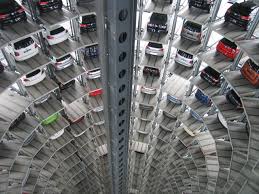
Breaking News
 Pentagon To Send 200 Troops to Nigeria
Pentagon To Send 200 Troops to Nigeria
 Trump Says He May Send Second Aircraft Carrier to Middle East To Prepare for Potential Attack...
Trump Says He May Send Second Aircraft Carrier to Middle East To Prepare for Potential Attack...
 A Market Crash and Recession Are Bullish, Not Bearish
A Market Crash and Recession Are Bullish, Not Bearish
 What Are They Still Hiding? New Epstein Questions Point to a Much Bigger Cover-Up
What Are They Still Hiding? New Epstein Questions Point to a Much Bigger Cover-Up
Top Tech News
 Drone-launching underwater drone hitches a ride on ship and sub hulls
Drone-launching underwater drone hitches a ride on ship and sub hulls
 Humanoid Robots Get "Brains" As Dual-Use Fears Mount
Humanoid Robots Get "Brains" As Dual-Use Fears Mount
 SpaceX Authorized to Increase High Speed Internet Download Speeds 5X Through 2026
SpaceX Authorized to Increase High Speed Internet Download Speeds 5X Through 2026
 Space AI is the Key to the Technological Singularity
Space AI is the Key to the Technological Singularity
 Velocitor X-1 eVTOL could be beating the traffic in just a year
Velocitor X-1 eVTOL could be beating the traffic in just a year
 Starlink smasher? China claims world's best high-powered microwave weapon
Starlink smasher? China claims world's best high-powered microwave weapon
 Wood scraps turn 'useless' desert sand into concrete
Wood scraps turn 'useless' desert sand into concrete
 Let's Do a Detailed Review of Zorin -- Is This Good for Ex-Windows Users?
Let's Do a Detailed Review of Zorin -- Is This Good for Ex-Windows Users?
 The World's First Sodium-Ion Battery EV Is A Winter Range Monster
The World's First Sodium-Ion Battery EV Is A Winter Range Monster
 China's CATL 5C Battery Breakthrough will Make Most Combustion Engine Vehicles OBSOLETE
China's CATL 5C Battery Breakthrough will Make Most Combustion Engine Vehicles OBSOLETE
Death Spiral for Car Ownership? End of Fuel-Powered Cars by 2024?

I have been a leading proponent that self-driving vehicles, especially trucks, will be here sooner than most think. My estimate for long-haul trucks taking over is 2021-2022 or so. Widespread adoption of self-driving cars will be slower.
Many of my readers think that 2021-2022 is impossible. However, some recent studies claim I am far too pessimistic in my assessment.
For example, a California think tank proposes Fuel-powered cars 'will not be manufactured after 2024'.
Cars powered by fossil fuels will no longer be made after 2024 as self-driving electrical vehicles become vastly cheaper to use, according to a report by a Californian think tank.
The death of the internal combustion engine will be accelerated by a new model of car use in which fleets of self-driving vehicles are available for all to use, making car ownership uneconomic, the study said.
The report by Tony Seba, an economist at Stanford University, finds that forecasts of a slow move from fuel-powered vehicles to electric vehicles envisage drivers continuing to own cars. He argues that the introduction of driverless technology will be driven by companies such as Uber and DiDi, which will invest massively in creating a fleet of vehicles that are so cheap and convenient to use that car ownership will become a thing of the past.
Seba said the world is on the cusp of one of the fastest, deepest, most consequential disruptions of transportation in history. "By 2030, within 10 years of regulatory approval of autonomous vehicles, 95 percent of US passenger miles traveled will be served by on-demand autonomous electric vehicles owned by fleets, not individuals, in a new business model we call 'transportas-a-service.'"
The report, co-authored by James Arbib, estimates that the costs at the moment of disruption when transport as a service is available will be:
Driving a paid-off fuel car: 34 cents per mile
Buying a new fuel car: 65 cents per mile
Buying a new electric vehicle: 62 cents per mile
Using transport as a service: 16 cents per mile
Death Spiral for Cars
Renew Economy says Death spiral for cars. By 2030, you probably won't own one. The source of this article is also Tony Seba.
By 2030, you probably won't own a car, but you may get a free trip with your morning coffee. Transport-As-A-Service will use only electric vehicles and will upend two trillion-dollar industries. It's the death spiral for cars.



